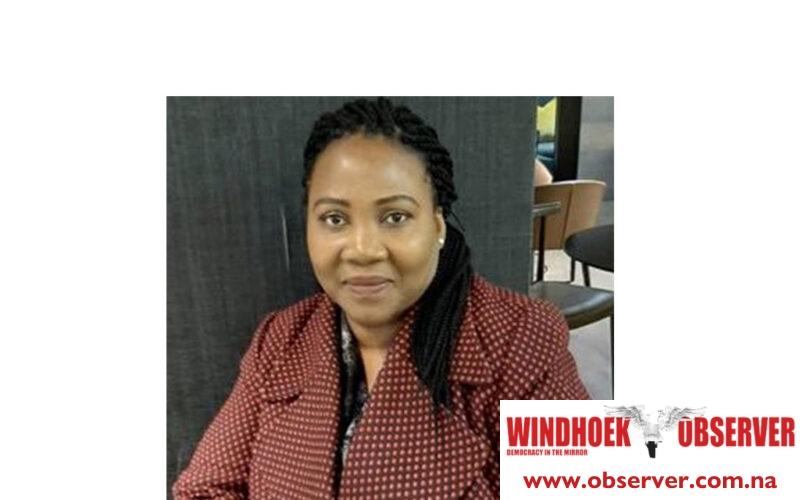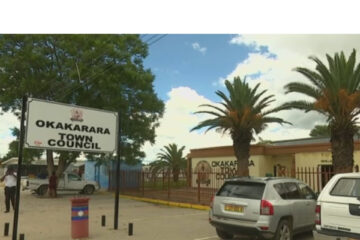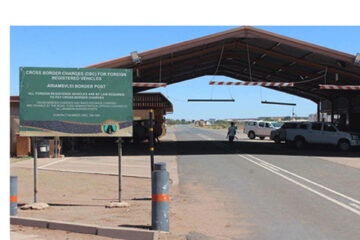Moses Magadza and Hertta-Maria Amutenya
The secretary general of the Southern African Development Community Parliamentary Forum (SADC PF) has underscored the need for a rights-based approach in the global response to HIV and AIDS.
As the world celebrated World AIDS Day on 1 December, Boemo Sekgoma, the secretary general of SADC PF, released a statement with the theme, “Take the rights path: my health, my right!” SADC PF Secretary-General Boemo Sekgoma reaffirmed the Forum’s commitment to advocating for the rights of people living with HIV.
Sekgoma stressed the urgency of addressing the inequalities faced by vulnerable populations, including sex workers, prisoners, and members of the LGBTIQ community, who often encounter barriers to affordable and accessible HIV treatment.
“Health is a fundamental human right,” she said.
Over 50% of people living with HIV worldwide reside in Eastern and Southern Africa (ESA), with many SADC countries reporting over a million individuals living with the virus.
Sekgoma expressed the SADC PF’s commitment to advocating for the rights of individuals living with HIV.
“HIV treatment, including access to antiretroviral therapy (ARVs), must be available and affordable for all,” she said.
She believes that HIV treatment should be considered a justifiable right.
She urged parliamentarians and policymakers to prioritise health equity and non-discrimination in healthcare services, warning that failure to act could result in millions of preventable deaths.
The SADC PF has been at the forefront of promoting the domestication of the SADC Model Law on HIV, a framework designed to align regional HIV policies with international laws and treaties.
Sekgoma highlighted this initiative as a critical step in addressing the epidemic through a rights-based lens.
“We need immediate action and strong leadership to combat HIV and AIDS as a human rights and public health issue,” she said.
Namibia, one of the SADC member states, plans to commemorate World AIDS Day on 13 December at Rundu.
The event will focus on the Ministry of Health and Social Services’ (MoHSS) dual approach to combating HIV.
Minister of Health Kalumbi Shangula outlined the approach, which includes preventing infections through awareness and reducing sources of infection by making antiretroviral treatment widely accessible.
“ARVs are now available at clinic level to ensure clients can easily access their medication,” he said.
The ministry’s priorities include empowering citizens with information on prevention, strengthening case management, and fostering a sense of shared responsibility.
“The control and prevention of HIV/AIDS must be a collective responsibility of all Namibians,” Shangula added.
Former Health Minister, Dr Bernhard Haufiku said Namibia has made significant strides in combating HIV/AIDS, with notable reductions in prevalence and mortality rates.
Haufiku highlighted these achievements.
“We have reduced the national HIV prevalence from 22% in 2000 to 9.7% by 2023.” HIV-related deaths have also dropped by over 70% during this period.
Haufiku credited advancements in antiretroviral treatment (ART) for this progress, noting that 95% of people who know their HIV status are on ART, with 98% achieving viral suppression. Namibia, along with Botswana, is nearing the elimination of mother-to-child transmission of HIV, with a 98% prevention rate.
However, challenges remain.
Haufiku emphasised the need to address stigma, gender inequality, and discriminatory laws.
“We must make HIV services accessible to all and protect women from gender-based violence,” he stated.
He also stressed the importance of integrating HIV and tuberculosis (TB) care into broader healthcare reforms, as TB remains the leading cause of HIV-associated comorbidity.




